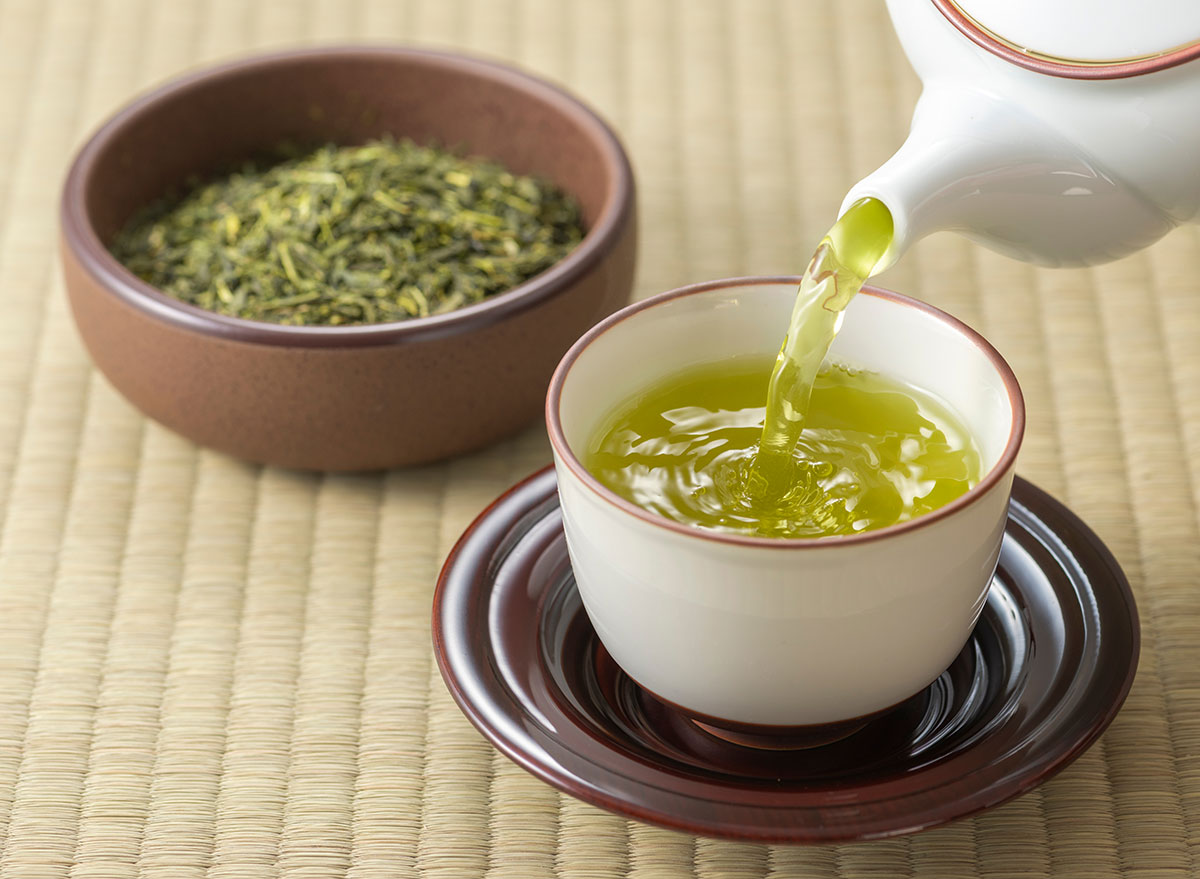One Major Side Effect of Drinking Green Tea

Important question! Do you start your morning with a mug full of piping hot coffee or green tea? Both have been shown to provide a wealth of potential health benefits to the body, in addition to giving you that necessary boost of energy in the morning. However, there’s one major side effect of drinking green tea (and a very good one at that) we think anyone and everyone could benefit from knowing.
So, ready for “the tea?” Drinking green tea regularly may reduce your risk of developing heart disease. (Related: The 7 Healthiest Foods to Eat Right Now).
Several studies from the past decade have shown that green tea may be able to shield the heart from disease. It reduces or levels your LDL “bad” cholesterol, the harmful type of cholesterol for your body. When LDL builds up in form of fatty deposits or plaque within the walls of your arteries—aka the all-important blood vessels that deliver blood from the heart to the tissues all over the body—it can harden and cause the vessels to thicken.
The thickening of the artery’s wall is a key sign of atherosclerosis, which is a form of heart disease. Then, if the artery becomes clogged from this plaque buildup, this can lead to a heart attack or even stroke. One 2013 study found that the higher green tea consumption was among participants, the lower their risk of stroke was.
However, in order to reap the heart-healthy benefits from green tea, you may need to drink a lot of it—especially if you already have atherosclerosis or have experienced a stroke or heart attack. A recent study published in the journal Stroke found that drinking at least seven cups of green tea a day lowered stroke survivors’ risk of death from any cause by a whopping 62%.
So why not brew yourself a steaming cup of green tea today?